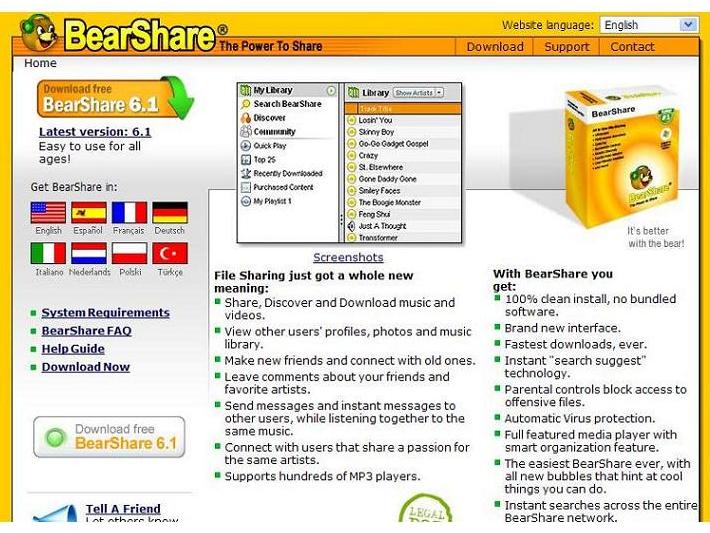Most risk when searching for music or tech
McAfee lists websites most likely to contain spyware

Searching for music and technology online, especially using Yahoo, can get you into a lot of trouble according to a new report from computer security firm McAfee . Websites relating to these search terms are most likely to include spyware and other malicious code.
Nearly half (42 per cent) of all websites displayed when searching for 'screensavers', for example, lead to websites flagged with a 'red' or cautionary 'yellow' warning by McAfee's SiteAdvisor service.
'Red' rated websites are those which have failed McAfee SiteAdvisor's safety tests. "Examples are websites that distribute adware, send a high volume of spam, or make unauthorised changes to a user's computer," said the report. Examples of 'yellow' rated websites are those which send a high volume of 'non-spammy' email, display many pop-up ads, or prompt a user to change browser settings.
Other risky search terms include names of file-sharing applications, namely BearShare , LimeWire and Kazaa . In many cases, these programs came bundled with unwanted adware, McAfee said in its ' The State of Search Engine Safety ' report.
Clicking is risky
Risks are greater when clicking on keyword ads displayed alongside web results. McAfee said 7 per cent of such links produce risky sites, down from 8.5 per cent a year ago.
McAfee's SiteAdvisor rates websites based on whether they result in spyware, viruses, excessive pop-up ads, junk email or other threats. The study was conducted by running about 2,300 popular keywords through the top five search engines in the US: Google, Yahoo, Windows Live Search, AOL Search and Ask.com.
Some search companies have taken steps to lessen the risks. Google sometimes flags links to websites it deems risky. And McAfee found a notable drop in risk when using Google, AOL and Ask.com. Ask and AOL receive search ads from Google, and AOL uses Google to power regular search results as well.
Get daily insight, inspiration and deals in your inbox
Sign up for breaking news, reviews, opinion, top tech deals, and more.
"We've seen some incremental steps in the right direction," said Mark Maxwell, senior product manager for SiteAdvisor. "But the average Joe user should be aware there's still plenty to be concerned about."
Yahoo most risky
Yahoo was deemed the most risky search engine. McAfee said 5.4 per cent of Yahoo searches returned links to 'risky' internet sites. AOL was found to be the safest of the top five, with 2.9 per cent of sites.
Yahoo said it had a "rigorous editorial policy" on websites displayed by its search results, especially for sponsored results.
"We have strict editorial policies in place, conduct ongoing editorial review and employ teams of product experts, engineers and analysts focused on ensuring and continually enhancing the relevancy of our sponsored search ads," said Reggie Davis, vice president of marketplace quality at Yahoo.
"Yahoo has been a strong proponent of helping fight malware, and is, in fact, the only major search vendor who makes free anti-spyware software available to its users. We support any efforts that help with the ongoing fight against unsafe websites," Davis said.